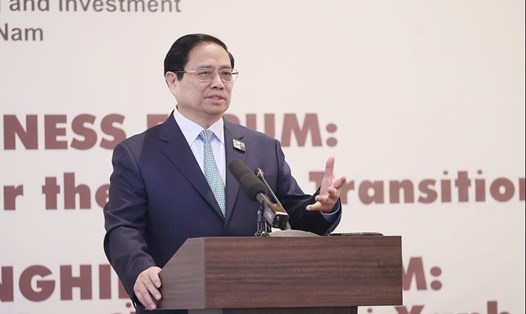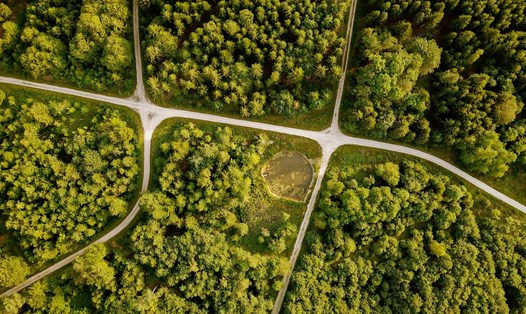How do you evaluate the role and contributions of Vietnamese enterprises in implementing green transformation?
- Associate Professor, Dr. Nguyen Dinh Tho: The Vietnamese business community is making an important contribution to the greening and sustainable development process. The contribution of Vietnamese enterprises in the green transformation process is strategic and indispensable in achieving the country's sustainable development goals. The efforts that Vietnamese enterprises such as Vinamilk, Vietnam Electricity Group (EVN), Vingroup, along with small and medium enterprises (SMEs), are making can become the main driving force to promote the green transformation process.
Vietnamese businesses are gradually moving into new areas such as renewable energy, electric vehicle manufacturing, waste management and other clean industries. This creates new jobs for workers and requires the development of human resources with green skills. Vietnamese businesses are increasingly participating in international treaties on climate change and environmental protection. Through cooperation with international organizations and foreign businesses, Vietnamese businesses have learned and applied advanced models and technologies to improve productivity and minimize environmental impact.
When participating in the global supply chain, Vietnamese enterprises must comply with strict environmental standards from international partners. This requires them to adjust their production processes, waste management and energy efficiency. These changes not only help enterprises improve their reputation but also promote green transformation throughout the entire supply chain.
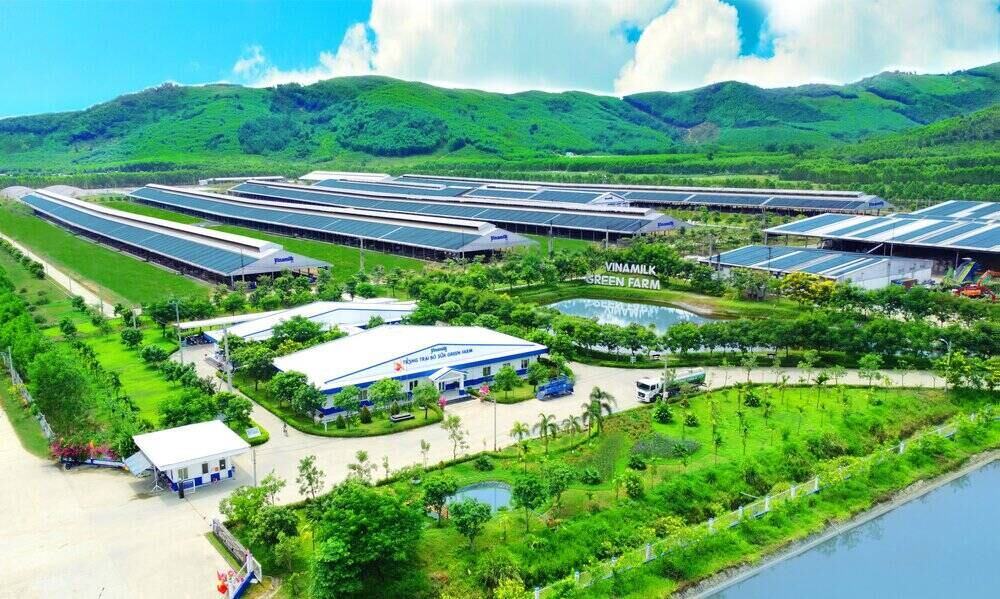
Many businesses have participated in community activities, supported environmental protection projects, and contributed to building a sustainable society.
Vinamilk has invested in modern dairy farms, using advanced technology to reduce pollution and protect water resources. In addition, Vinamilk also participates in water resource protection projects, carries out environmental protection activities, conserves biodiversity and develops sustainable supply chains.
VinFast has invested heavily in research and development of electric vehicles, contributing to reducing air pollution and dependence on fossil fuels. VinFast applies modern production technologies, minimizing emissions and waste into the environment. VinFast is building a complete electric vehicle ecosystem, including charging stations and electric vehicle-related services, to promote the use of electric vehicles in Vietnam.
Vietjet Air has taken many measures to reduce the amount of plastic waste on board, use biofuels and encourage passengers to participate in environmental protection activities, participate in forest planting programs, protect wildlife and support local communities, and cooperate to raise awareness of environmental protection in the aviation industry.
Nestle Group aims to reduce greenhouse gas emissions, use recycled packaging and promote sustainable agriculture. Nestle has invested in renewable energy projects and developed organic food products.
What difficulties and challenges do businesses face in their green transformation goals, sir?
- Associate Professor, Dr. Nguyen Dinh Tho: Green transformation is a process that requires fundamental changes in the business and production model of enterprises. The difficulties and challenges that enterprises may encounter in the green transformation process towards the Net Zero goal include high investment costs, lack of technology and expertise, changes in production and consumption habits, changes in labor structure, shortage of human resources, incomplete infrastructure, lack of information and knowledge, difficulties in accessing the market, and competitive pressure.
Achieving Net Zero requires businesses to adapt their entire manufacturing and supply chain processes. This requires changes not only in internal operations but also impacts the supply chain, partners and consumers.
Green transformation will lead to changes in human resource structure, especially for heavy industries or businesses that depend on fossil energy. Retraining employees, changing roles within the company and ensuring labor stability are major challenges for businesses when implementing the Net Zero strategy. Green transformation requires highly skilled human resources, knowledgeable about green technology and renewable energy. Training and recruiting this human resource will take time and cost.
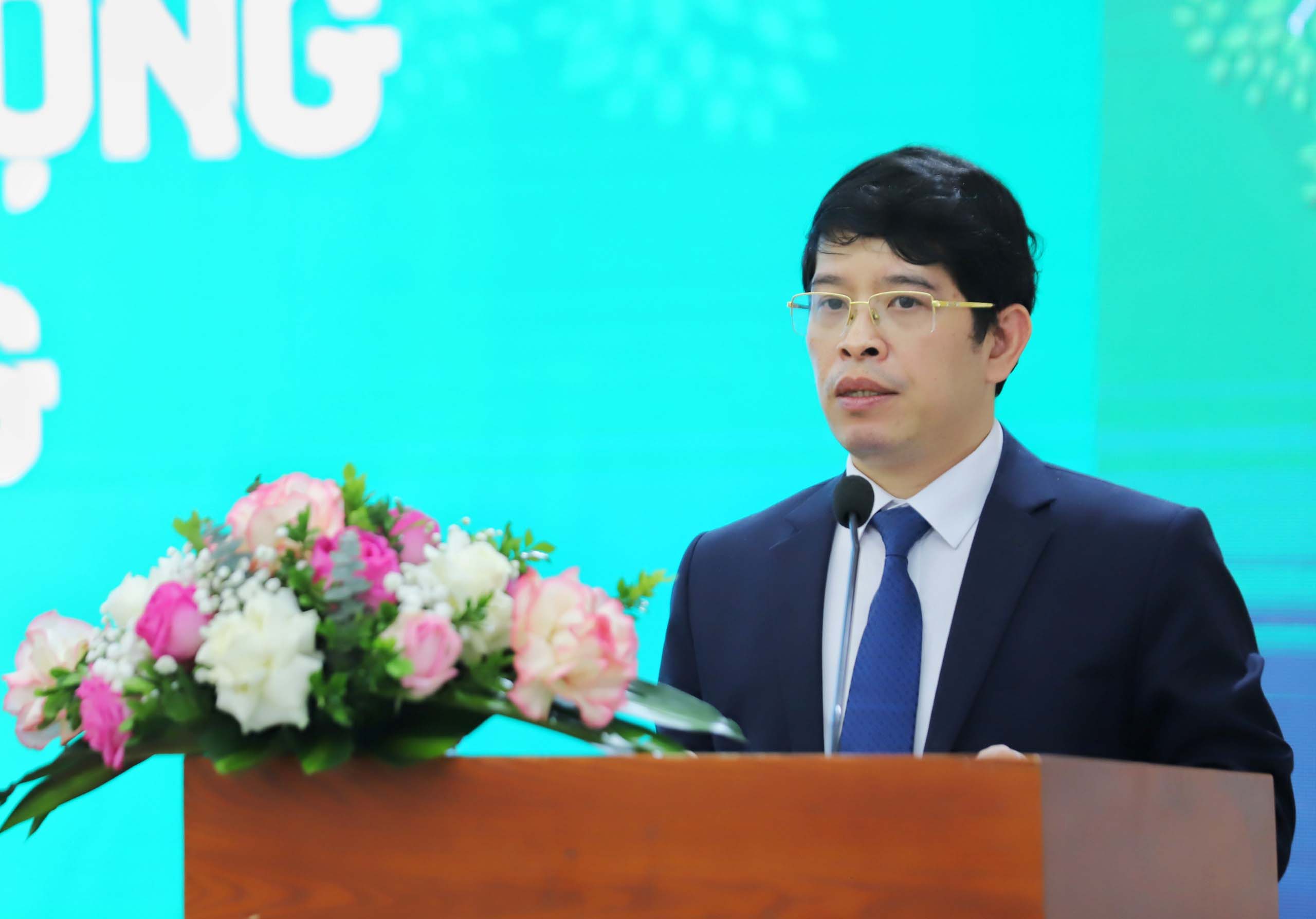
Many businesses still have limited information and knowledge about green technologies, support policies, and new business opportunities.
Businesses may face competitive pressure from those that have not adopted a Net Zero policy, which may have lower production costs in the short term. This could impact the price competitiveness and market share of those that have invested in emission reduction technologies and processes.
Achieving Net Zero goals requires businesses to adapt their entire production and supply chain processes. This requires changes not only in internal operations but also impacts the supply chain, partners and consumers. The power grid and public transport infrastructure are not yet meeting the needs of green production and business activities.
So what do Vietnamese businesses need to do to overcome difficulties and achieve good results?
- Associate Professor, Dr. Nguyen Dinh Tho: To overcome difficulties and challenges in the green transformation process, Vietnamese enterprises need to focus on a number of strategic solutions. Specifically, enterprises need to develop a clear green transformation strategy with a specific transformation roadmap; Invest in technology and innovation; Seek green capital sources; Build cooperative relationships and connections in the supply chain; Train and improve the capacity of employees; Build a sustainable corporate culture; Strengthen risk management and compliance with legal regulations.
Businesses need to clearly define short-term and long-term green transformation goals, including reducing emissions, saving energy, using recycled materials, and developing green products. Carefully assess the risks and opportunities associated with the transformation process, and then propose appropriate response plans. Develop a detailed plan with timelines, required resources, and performance indicators.
Enterprises need to proactively research and apply advanced technologies to reduce greenhouse gas emissions, improve energy efficiency and promote the use of renewable energy, helping enterprises comply with Net Zero commitments and enhance competitiveness in the international market.
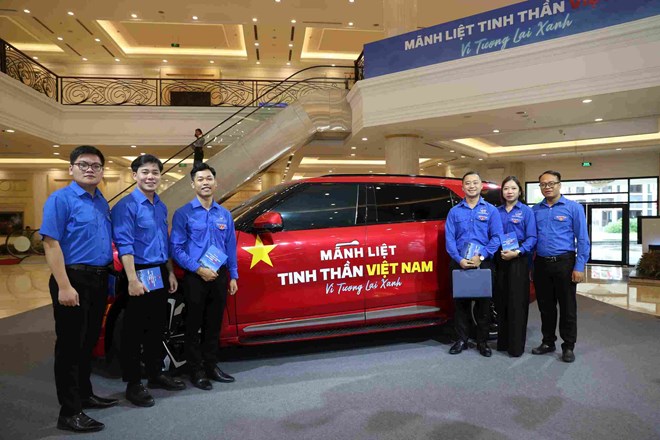
Enterprises need to take advantage of green financial resources such as sustainable development support funds, green bonds or preferential credit programs from banks and international organizations, helping to reduce the financial burden in the process of transitioning to a green economic model. Enterprises need to strengthen cooperation with partners in the supply chain to synchronize emission reduction activities and implement green transformation, helping to create more sustainable solutions and effectively spread them to partners, customers and consumers. Seek partners to provide green materials and sustainable logistics services. Participate in research projects to access new technologies and advanced solutions. Seek support from state agencies on policy, finance and information.
Businesses need to create a business culture that promotes sustainability and social responsibility. Encourage all employees to participate in the green transformation process and understand the importance of environmental protection for the long-term development of the business. To successfully transform green, businesses need to improve the qualifications and skills of the workforce.
Businesses need to proactively learn about and comply with legal regulations related to the environment and emission reduction. At the same time, it is necessary to assess climate-related risks and develop preventive measures to protect businesses from changes in the business environment.
Build a brand image associated with sustainability and social responsibility. Increase communication about the company's environmental protection activities to attract customers and partners. Build an index system to evaluate the effectiveness of green transformation activities. Conduct regular monitoring and evaluation to promptly adjust plans and activities.
In the coming time, what plans does the Ministry of Natural Resources and Environment have to promote and create a favorable environment for businesses and the business community to innovate and create, especially in the field of green economy and green transformation?
- Assoc. Prof. Dr. Nguyen Dinh Tho: In recent times, the Ministry of Natural Resources and Environment has actively supported and accompanied the business community in the green transformation process through the development and promulgation of policies, laws, circulars, and decrees to create favorable conditions for businesses to implement sustainable development goals and minimize environmental impacts.
In the coming time, the Ministry of Natural Resources and Environment will implement many plans to create a favorable environment and promote innovative businesses, especially in the field of green economy and green transformation, focusing on building and perfecting the legal framework, providing financial and technical support, strengthening communication and raising awareness, developing management and digitalization tools, encouraging links between businesses and research, and supporting the implementation of the Net Zero commitment.
The Ministry of Natural Resources and Environment will continue to improve legal documents related to environmental protection and sustainable development, such as Decrees and Circulars guiding the implementation of the Law on Environmental Protection 2020, helping to create a clear and stable legal corridor, supporting businesses in the transition to a green economy.
The Ministry of Natural Resources and Environment will coordinate with relevant ministries, sectors and international organizations to mobilize green financial resources, provide preferential credit support packages and sustainable development funds for businesses. Technical assistance programs on green technology transfer and capacity building will also be implemented to help businesses easily access and apply advanced technologies. The Ministry will promote propaganda, education and awareness raising activities on green economy and green transformation through seminars, forums and training programs, helping businesses better understand opportunities and challenges, promoting innovation.
The Ministry of Natural Resources and Environment is planning to develop data management tools and digital information systems related to the environment and resources. These systems will help businesses manage and monitor sustainability activities, thereby ensuring compliance with environmental standards and minimizing negative impacts on the environment.
The Ministry of Natural Resources and Environment will coordinate with the Ministry of Science and Technology and relevant ministries and sectors to create conditions for businesses to cooperate with research institutes and universities in developing green technologies and solutions, helping to promote innovation and creativity from the application of science and technology in the environmental field.
The Ministry of Natural Resources and Environment will continue to implement action programs and plans to support businesses towards the Net Zero target by 2050, in line with Vietnam's commitment at COP26. Support mechanisms include providing information, data, and specific guidance on measures to reduce greenhouse gas emissions. Developing green markets, building carbon markets to create mechanisms to encourage businesses to reduce greenhouse gas emissions. Encouraging green consumption, enhancing communication, raising consumer awareness of green products, creating a market for green products. Supporting businesses to access international markets, supporting businesses to participate in international fairs and exhibitions to promote green products, and finding partners.
The Ministry of Natural Resources and Environment will focus on providing financial and technical support, raising awareness, promoting scientific and technological cooperation, and developing digital management tools to facilitate green transformation of businesses and sustainable economic development. Achieving this goal requires the efforts of all stakeholders. Building a green economy not only benefits businesses but also contributes to protecting the environment and ensuring a sustainable future for future generations.
Achieving this goal requires the efforts of all stakeholders. Building a green economy not only benefits businesses but also contributes to protecting the environment and ensuring a sustainable future for future generations.
Thank you!








